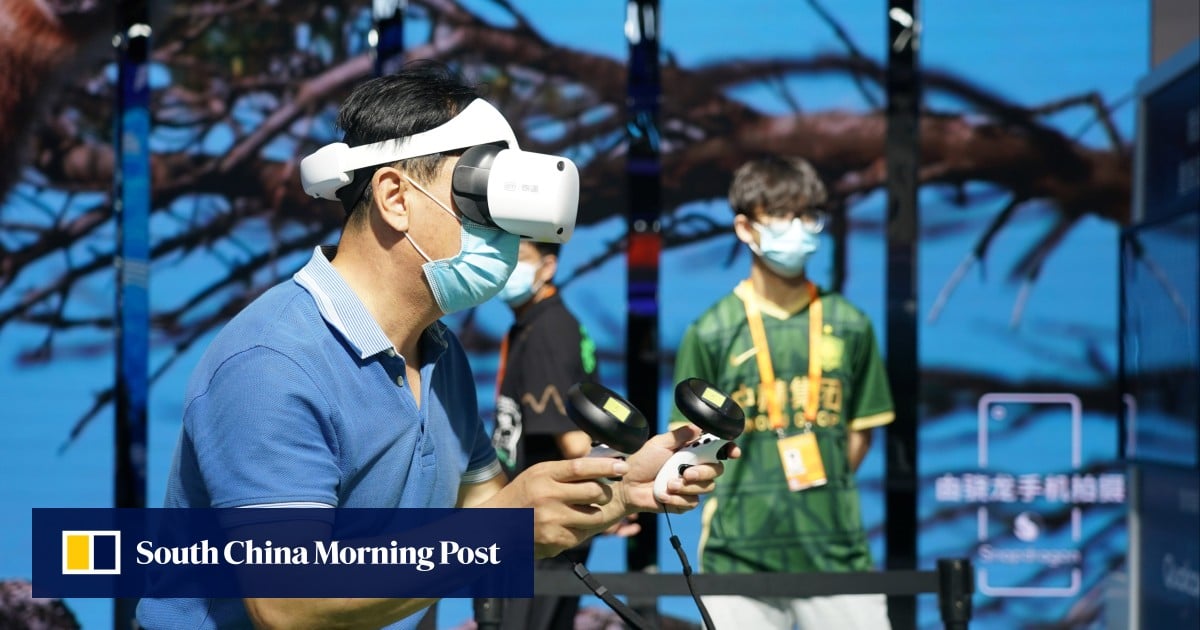
02 Jan Exclusive | Veteran Chinese video gaming official steps down in wake of market rout linked to proposed rule changes, sources say
A key Chinese official involved in oversight of the country’s video gaming industry has stepped down after proposed regulation last month wiped out billions of dollars of value from Chinese gaming stocks, according to people familiar with the situation.
Feng Shixin, a long-serving official, has left his official role as the publication bureau chief at the Communist Party’s Central Propaganda Department, one person told the South China Morning Post, asking not to be identified due to the sensitivity of the matter.
A second person, who also asked for anonymity, said Feng’s departure was a sign that China may walk back some of last month’s proposed restrictions on consumer spending in video games, which surprised the market due to their severity.
The National Press and Publication Administration (NPPA), the agency that answers directly to the propaganda authority in overseeing China’s video gaming industry, did not immediately respond to a request for comment.
China’s video gaming watchdog speaks out after spending rules roil market
China’s video gaming watchdog speaks out after spending rules roil market
Feng’s departure comes as Beijing attempts to limit the damage from the NPPA’s disclosure on December 23 of draft rules aimed at reining back spending on video games, which triggered a global sell-off of China gaming stocks, including leading players such as Tencent Holdings and NetEase.
According to the published proposals, which are open to public feedback until January 22, video game developers would have to implement measures to cap user spending, with bans on “excessive” rewards for activity such as daily logins and top-ups for fresh spending by consumers.
The timing and severity of the proposed rule changes dealt a fresh blow to already-fragile investor confidence in Chinese stocks. NetEase, the country’s No. 2 gaming operator, fell by nearly a quarter in a single trading day, with Tencent dropping over 12 per cent.
The new rules appeared to be at odds with a recent change in Beijing’s tone towards the video gaming industry – previously subject to a harsh crackdown – and broad efforts by the government to stabilise stock market sentiment and support the country’s private sector.
In an attempt at damage control, the NPPA subsequently said the proposed regulation changes were aimed at “healthy development” of the gaming industry and that it would “revise and improve” the rules.
Feng is a veteran regulator. He delivered keynote speeches at the China Gaming Industry Annual Conference, the yearly gathering of officials and executives for three consecutive years in 2018, 2019 and 2020 as a deputy publication bureau chief.
In December 2020, Feng urged China’s gaming companies to be vigilant about gaming content and not to “provide channels for any harmful content”.
At the latest annual conference in December 2023, Yang Fang, an official from the NPPA, delivered the keynote speech after Feng delegated the task to her.
Hong Kong stocks rebound as Tencent, NetEase rally, China data aids sentiment
Hong Kong stocks rebound as Tencent, NetEase rally, China data aids sentiment
China has developed a sophisticated regulatory system for video gaming since the propaganda department took over the regulatory authority in 2018 from other ministries.
All online video games must go through rigorous screening to obtain licences before being released to the public and monetised, and all players are required to have real-name registration.
Prior to a recent easing, Chinese authorities had deemed video gaming as “spiritual opium” and implemented several rules to avoid addiction among minors and to promote healthy growth of the industry.
In the summer of 2021, China imposed a play time ceiling of three hours per week – from 8pm to 9pm on Fridays, Saturdays and Sundays – for players under the age of 18.

